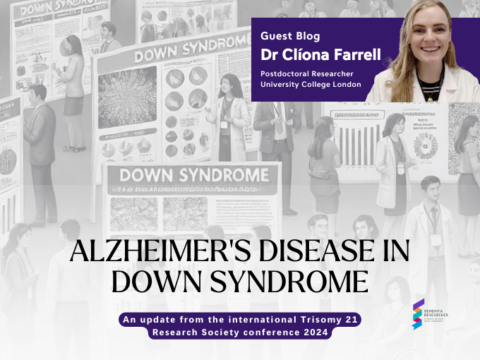I recently collaborated with Dementia UK to produce some digital content for their website and practice development team – which provides ongoing learning and development for Admiral nurses nationally. The central role for admiral nurses is in supporting caregivers and families of people with dementia, which means being there when people need help, listening and problem solving. They are specialist dementia nurses with loads of advanced skills, and they provide life-changing support that helps so many people.
With the development team lead, together we identified an area in which I could help! There was the need for a webinar session on medicines management and safety, a query that the nurses often encounter, but one that they needed just a little bit of targeted teaching in.
Although my PhD is in quality-of-life outcomes in dementia, I am also a community pharmacist – medicines management was my original forte! For today’s blog I am going to summarise the key points of this webinar, as I believe that researchers in the area that don’t already know, could benefit from learning about medications in dementia – and how they are managed in the care plans of people with dementia.
So firstly, as we know there is currently no cure for dementia, but it is often possible to relieve some symptoms via drug therapies. Drug treatments do not work for all types of dementia, and they do not work for everyone. There is no one-size-fits-all policy in dementia medication planning, and some people may need to try multiple drugs to see what works for them. As Alzheimer’s disease accounts for ~75% of all dementia cases, this is the presentation of dementia that I will be focusing on today.
The Age UK report, ‘More Harm than Good’, demonstrates that whilst there are limited dementia mediciations, generally medicines are often prescribed:
- in excessive numbers
- in unsafe combinations
- without the consent or involvement of the older people concerned
- and without the support and help older people need to take them.
As a result, we have 2 main drug classes in AD medication. We have the cholinesterase inhibitors – which prevent the reuptake of acetylcholine, which leads to the increase in the duration of effect and action of acetylcholine in the brain. And we have the NMDA receptor antagonists – which block the NMDA (N-Methyl-D-Aspartate) receptors. These works at a cellular level to limit calcium influx – which is thought to therefore reduce brain cell death.
There are 4 most commonly prescribed drugs for the management of AD. They are donepezil, rivastigmine, galantamine and memantine. The first 3 are all acetylcholinesterase inhibitors and memantine in an NMDA receptor antagonist.
These drugs are used to control symptoms and symptom progression in AD. They can also be prescribed in dementia with Lewy bodies, Parkinson’s disease related dementia and mixed dementia. They will not be given in frontotemporal dementia – which is typically treated with antidepressants. And vascular dementia (VD) will usually be given drugs to treat vascular problems such as high blood pressure and heart disease, but also controlling diabetes and smoking cessation if necessary. If VD is suspected alongside Alzheimer’s disease, so the presentation is mixed, then these drugs can be used too. There is also good evidence for the joint use of donepezil and memantine in severe dementia. Combination therapy is something that can be adopted on a case-by-case basis and can have a lot of benefits for the patient.
Although these are not curing, drug therapies can boost cognitive health, aid with anxiety, concentration and memory and improved motivation and general daily life. They are not without their side effects though – which can be quite unpleasant for the patient, things like GI upset, headaches and dizziness. It must be noted that ~10% of people with dementia will be unable to tolerate these drugs because of their side effects.

Nearly 2 million older people are taking 7+ prescription medicines.
There are also several risks to be alert for when it comes to dementia drugs. It is likely that a person with dementia may be on multiple drugs (polypharmacy), and there are quite a few interactions to look out for – not just with prescribed drugs, but with over-the-counter remedies too. There’s also the issue of metabolism. Ageing is associated with a reduction in 1st pass metabolism. For every year past age 40, there is around a 1% reduction in this, which is likely due to a reduction in liver mass and blood flow. And in dementia populations there are other factors that can adversely impact metabolism too, if a person is of low body weight, poorly hydrated or poorly nourished – this can play a role too in how the drugs are broken down, and the risk of side effects. Non-adherence is another key issue, which describes when the patient’s actions do not match agreed recommendations. The most common reason is simply forgetting doses, but people non-adhere for loads of reasons, including avoidance of side-effects. And lastly, there’s titration, which refers to the process of gradually increasing a drug to achieve optimal amounts for the patients. This is done with dementia drugs to build up tolerance to side-effects and minimize the risk of cholinergic excess. Some drugs come in titration packs to aid this process, however as the dose is escalated, the probability of side effects may increase too.
The key pragmatic aspects involve in dementia drug management include address non-adherence. If this is due to forgetting, there are several tools that can be used to minimise this such as wipe board reminder charts, amazon Alexa and reminder apps on phones. We would also encourage taking up medication delivery services with their pharmacy provider to ensure that there is no medication backlog. This will minimise the risk of overdosing too. Monitored dosage systems, such as dosette trays are also a useful strategy as the medications are pre-dispensed into trays. And considering things like drug formulations is key. Practical things like difficulty opening bottle caps and difficultly with swallowing can be real barriers to adherence, but can typically be fixed by switching to liquids, orodispersible or patches. Ensuring that all medication are safely stored in locked drawers, away from access by children and that expired drugs are taken to pharmacies for proper disposal is important too.
Overall, medications are indeed useful in dementia care and management, but they are not without their risks. When managed effectively, these risks are minimal – but being aware of them and addressing them as soon as they arise is essential. This is particularly important in this particular population, where cognitive and functional decline are challenges.
Thanks for listening, Hannah!

Hannah Hussain
Author
Hannah Hussain is a PhD Student in Health Economics at The University of Sheffield. As a proud third generation migrant and British-Asian, her career path has been linear and ever evolving, originally qualifying as a Pharmacist in Nottingham, then Health Economics in Birmingham. Her studies have opened a world into Psychology, Mental Health and other areas of health, and with that and personal influences she found her passion for dementia.

 Print This Post
Print This Post




